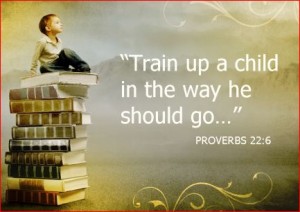Children had a special place in Christ’s ministry and He frequently referred to childlike characteristics when referring to the Kingdom of heaven. Jesus always had time for children and made special note of that. (Matthew  19:13, Mark 10:13, Luke 18:15). They were so special that Jesus made it clear that their protective angels had God’s ear in some sort of a special way. Matthew 18:10 tells us, “See that you do not despise one of these little ones. For I tell you that in heaven their angels always see the face of my Father who is in heaven.” This seems to be a remarkable statement considering that Moses only observed the “backside shadow” of God when he asked to see Him. In 1st John we read that “no man has seen God at any time.” Yet, here Jesus makes it clear that the protective angels of children not only see him but have his undivided attention which seems to be the focus of “seeing the face” of someone. The addition of the adverb “always” in the verse emphasizes the immediacy and focus of God’s care for these little ones.
19:13, Mark 10:13, Luke 18:15). They were so special that Jesus made it clear that their protective angels had God’s ear in some sort of a special way. Matthew 18:10 tells us, “See that you do not despise one of these little ones. For I tell you that in heaven their angels always see the face of my Father who is in heaven.” This seems to be a remarkable statement considering that Moses only observed the “backside shadow” of God when he asked to see Him. In 1st John we read that “no man has seen God at any time.” Yet, here Jesus makes it clear that the protective angels of children not only see him but have his undivided attention which seems to be the focus of “seeing the face” of someone. The addition of the adverb “always” in the verse emphasizes the immediacy and focus of God’s care for these little ones.
Children were so important to Jesus that He made it clear that to receive one of these was to receive him. Matthew 18:65 Jesus says, “Whoever receives one such child in my name receives me.” See also Mark 9:36 and Luke 9:48. To neglect our responsibility to children is a dangerous prospect. Jesus also taught that any adult who causes a little one to sin will face God’s wrath. Again, all three of the synoptic Gospels (Matthew 18:6f, Mark 9:42, Luke 17:2) make it clear that it would be better for a man to have a great millstone hung around his neck and be drowned than to cause a child to stumble.
D. L. Moody was one of the greatest evangelists in American History. I’ve often quoted his answer to an adult who questioned him about the effectiveness of a particular evangelistic event. He said that two and a half people had received Christ and had been saved during this event. When the adult asked, “do you mean two adults and one child?” Moody answered, “no, no, two children and one adult.” The life and ministry of the children lie before them while the adult’s life had already been spent. Another commentator writes about the foolishness of thinking adult ministry as more important than ministry to children. He writes, “There are more years of ministry in front of a child than any other age group. Children are not an inconvenience; they are the future church. In fact, statistics indicate that most people who have a relationship with God establish it before they leave home for college.” I especially liked is closing comment: “If Jesus can take them into his arms, so can and should we.”







